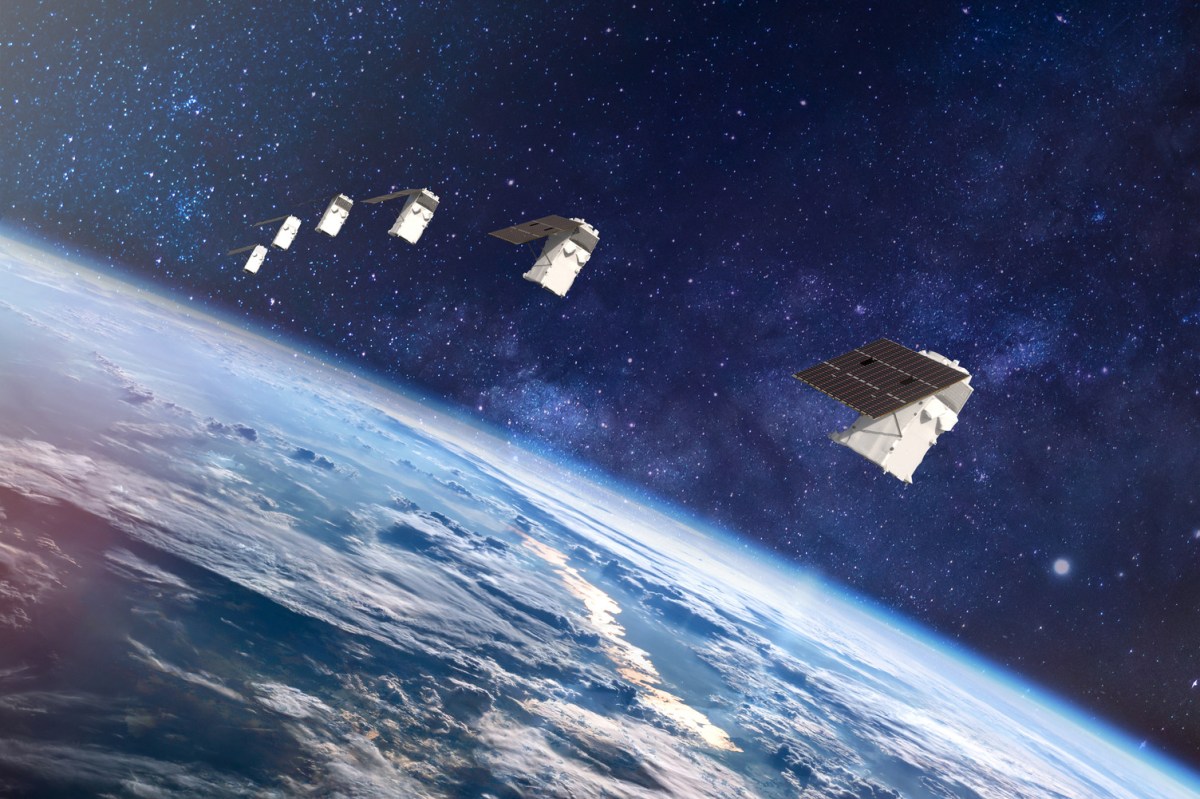WASHINGTON — Maxar Intelligence, a division of Maxar Technologies specializing in satellite imagery, is looking to strengthen its position in the competitive geospatial intelligence market by forging strategic partnerships and focusing on international opportunities,
That’s the plan laid out by Dan Smoot, the recently appointed CEO of Maxar Intelligence. A veteran tech executive, he previously worked at Salesforce, Cisco and VMWare,
Smoot took the helm at Maxar Intelligence in October 2023, a few months after Maxar, based in Westminster, Colorado, was acquired by the private equity firm Advent International for $6.4 billion.
As head of the company’s imagery business, Smoot will have to navigate significant hurdles in the months ahead. Chief among them is overseeing the deployment of Maxar’s long-delayed WorldView Legion satellite constellation — the company’s next-generation imaging platform that was supposed to start launching in 2021 and is now finally nearing its initial deployment, with the first two satellites set to lift off in the coming weeks.
In an interview with SpaceNews last week at the Space Symposium in Colorado Springs, Smoot said his top priority is to ensure a successful rollout of the Legion constellation while also exploring ways to leverage Maxar’s existing satellite infrastructure to maintain its market position.
An aperture cover protects WorldView Legion’s instrument during launch. Credit: Maxar Technologies
“It’s been a long journey with Legion,” he said. “It’s a new satellite design, and when you have a new design, you have to treat it very carefully and truly understand how you’re going to launch it and commission it,” he added.
The Legion satellites are built by Maxar Space Systems, the company’s manufacturing division based in Palo Alto, California. SpaceX already has set a launch window, Smoot said. “It’s coming very soon.”
Once Legion becomes operational, Maxar will look to diversify its offerings beyond its traditional high-resolution imagery to provide more sophisticated analytics and novel data products like 3D mapping, he said.
The world is in a state of flux, with ongoing conflicts, economic uncertainty, and major geopolitical shifts, Smoot noted. Governments and businesses are hungrier than ever for insights that can help them navigate these turbulent times, so companies like Maxar expect a growth in demand for geospatial intelligence.
When all six WorldView Legion satellites are deployed, Maxar’s daily imaging capacity will nearly double from 3.8 million square kilometers to more than 5 million square kilometers, said Smoot. To increase its daily revisit rate, the company is putting four Legion satellites in a mid-inclination orbit, while Maxar’s existing satellites are in a sun synchronous orbit.
‘Virtual constellation’
With more satellites in service, the goal is not just to deliver more pictures but also insights that empower better decision making, Smoot said. To that end, the company is forging partnerships with other remote-sensing operators to create a “virtual constellation” for geospatial intelligence.
Maxar already has a partnership agreement with synthetic aperture radar (SAR) data provider Umbra and is looking to work with other companies, said Smoot. Having access to other sensors and phenomenologies is important to meet the demands of U.S. government and international customers, he said.
The company recently hired a new chief technology officer — former Meta and Apple executive Arvind Srinivasan — to help improve Maxar’s analytics software through artificial intelligence and machine learning.
“At the Space Symposium, we’re seeing this new appetite for partnering,” Smoot said. “We’re very encouraged by the openness of other companies to want to partner and come up with an ecosystem so we can actually serve contracts better.”
Maxar’s largest contract is a $3.2 billion 10-year agreement with the National Reconnaissance Office to supply imagery and other services.
International markets
While national security concerns and geopolitical tensions are fueling demand for high-fidelity geospatial data, Maxar is looking beyond U.S. borders.
The international market is ripe for expansion, Smoot said. “We still see growth within the U.S. government,” but increasingly more nations are expressing interest in buying commercial geospatial data. “More countries are worried about what’s happening around their borders.”
Among the countries that are seeking new capabilities are the United Kingdom and the United Arab Emirates. Smoot said he was about to visit a potential customer in Asia to discuss opportunities.
Some governments are seeking commercial services while others are looking to build and operate their own constellations.
“Sovereign capability is a fast growing conversation,” said Smoot. “We are looking at how we can actually leverage our technology, both on orbit as well as on the ground to fill some of the sovereign capabilities, and there’s a lot of work to be done there.”
Many nations now see an opportunity “to actually build out new capabilities and the fastest way they’re going to get there is with commercial, versus trying to build new sovereign capabilities,” Smoot said. “And that’s why you see commercial providers actually very excited about the international market. There’s a pretty big appetite to leverage the infrastructure that’s been built by the commercial companies.”
